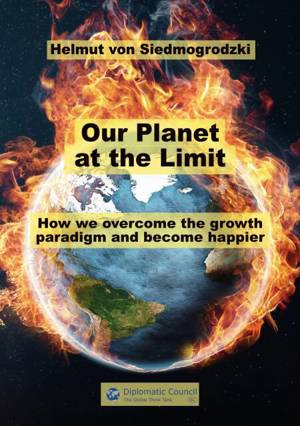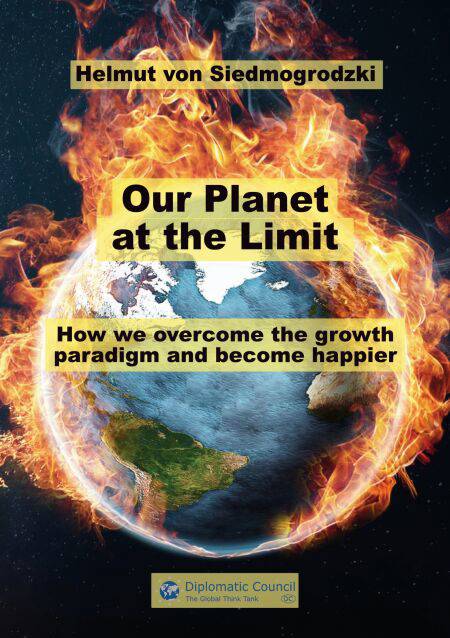
- Afhalen na 1 uur in een winkel met voorraad
- Gratis thuislevering in België vanaf € 30
- Ruim aanbod met 7 miljoen producten
- Afhalen na 1 uur in een winkel met voorraad
- Gratis thuislevering in België vanaf € 30
- Ruim aanbod met 7 miljoen producten
Zoeken
Our Planet at the limit E-BOOK
How we overcome the growth paradigm and become happier
Helmut von Siedmogrodzki
E-book | Engels
€ 18,99
+ 18 punten
Omschrijving
Only if we succeed together in overcoming the mantra of seemingly eternal economic growth can we save our planet and thus ensure our survival as humanity. Renouncing excessive consumption that goes beyond all limits is not really a disadvantage at all. Instead, it makes us happier and our world more peaceful. The author urgently appeals to us to recognise the limits of growth before it is too late.
Helmut von Siedmogrodzki presents a wealth of facts to show that the current "solutions" lead to a dead end. For example, the call to overcome capitalism is senseless, because socialism does exploit "Mother Earth" any less. It is also a misconception that technological progress could curb the consumption of resources - on the contrary, as the enormous power requirements of artificial intelligence show. And in the end, we will have to pay dearly for growth on credit with a dizzying level of national debt.
However, Helmut von Siedmogrodzki does not stop at saying what will not work, but shows concrete ways to escape the growth trap. Step by step, the author explains the basics of sustainable economic activity. He identifies three key factors. Firstly, the transformation to a service society in which the focus is on the needs-based use of goods rather than their possession. Secondly, a strong regionalisation of our value chains in order to put a stop to completely excessive globalisation. And thirdly, a modernisation of our financial system that dispenses with transactions that bring no benefit to the community.
As a successful management consultant for decades, Helmut von Siedmogrodzki also sees his work as a concrete guide to action for the economy. He methodically explains how companies can position themselves for the future and how the economy must be rethought in order to preserve the world for our children and grandchildren.
Helmut von Siedmogrodzki presents a wealth of facts to show that the current "solutions" lead to a dead end. For example, the call to overcome capitalism is senseless, because socialism does exploit "Mother Earth" any less. It is also a misconception that technological progress could curb the consumption of resources - on the contrary, as the enormous power requirements of artificial intelligence show. And in the end, we will have to pay dearly for growth on credit with a dizzying level of national debt.
However, Helmut von Siedmogrodzki does not stop at saying what will not work, but shows concrete ways to escape the growth trap. Step by step, the author explains the basics of sustainable economic activity. He identifies three key factors. Firstly, the transformation to a service society in which the focus is on the needs-based use of goods rather than their possession. Secondly, a strong regionalisation of our value chains in order to put a stop to completely excessive globalisation. And thirdly, a modernisation of our financial system that dispenses with transactions that bring no benefit to the community.
As a successful management consultant for decades, Helmut von Siedmogrodzki also sees his work as a concrete guide to action for the economy. He methodically explains how companies can position themselves for the future and how the economy must be rethought in order to preserve the world for our children and grandchildren.
Specificaties
Betrokkenen
- Auteur(s):
- Uitgeverij:
Inhoud
- Aantal bladzijden:
- 168
- Taal:
- Engels
Eigenschappen
- Productcode (EAN):
- 9783986741266
- Verschijningsdatum:
- 18/12/2024
- Uitvoering:
- E-book
- Beveiligd met:
- Digital watermarking
- Formaat:
- ePub

Alleen bij Standaard Boekhandel
+ 18 punten op je klantenkaart van Standaard Boekhandel
Beoordelingen
We publiceren alleen reviews die voldoen aan de voorwaarden voor reviews. Bekijk onze voorwaarden voor reviews.











